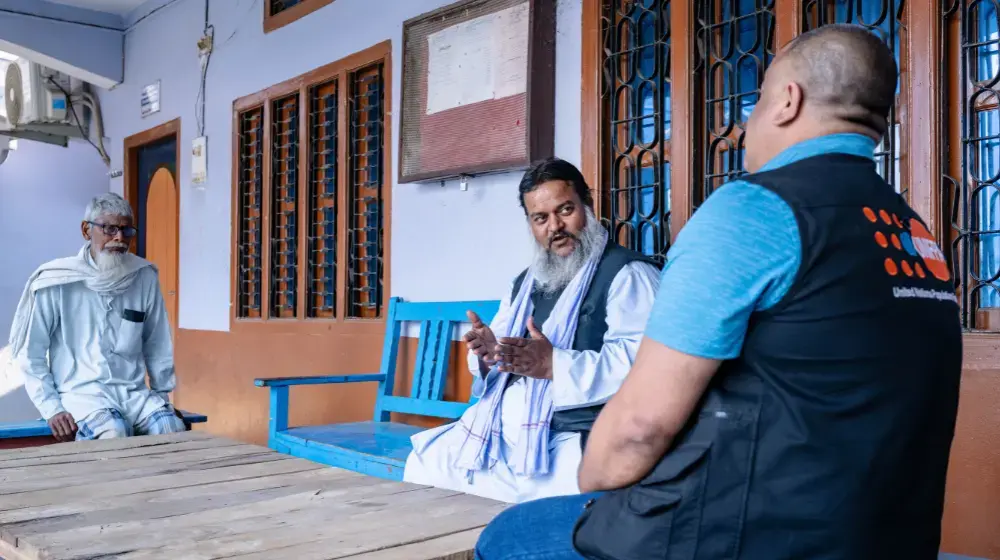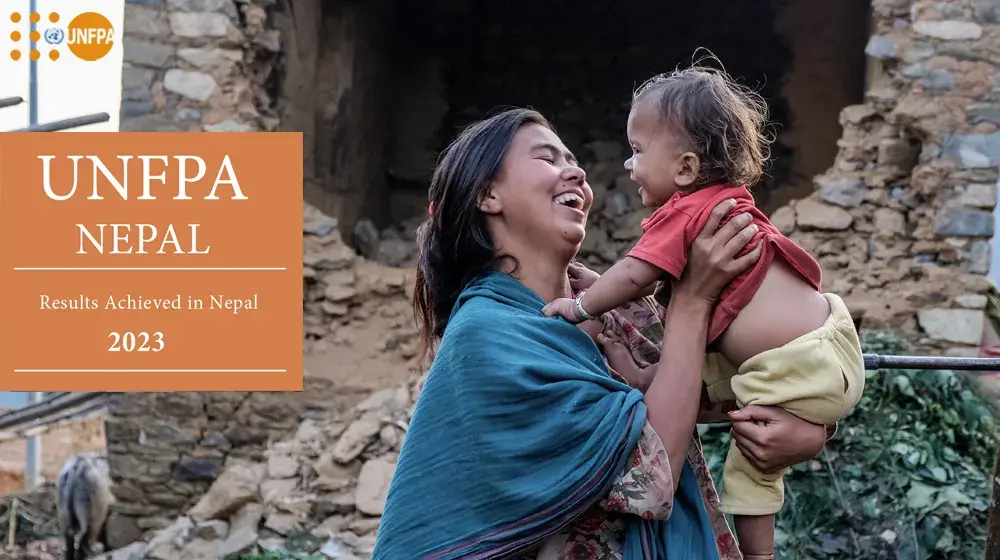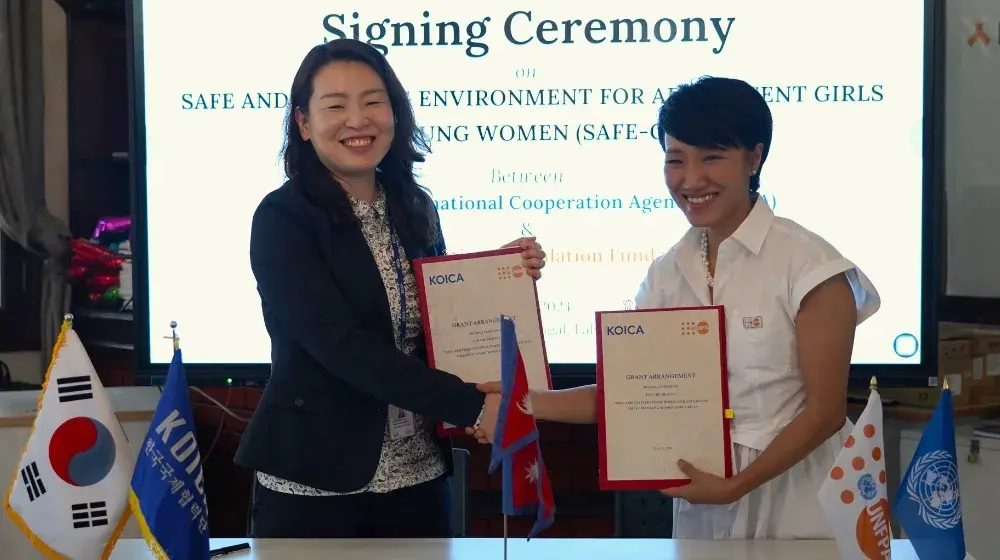Saptari is the most recent addition to the list of districts in Nepal offering adolescent sexual and reproductive health services with support from UNFPA, the United Nations Population Fund.
As of March 2015, thirteen health facilities in Saptari have been selected; these will be receiving support to become responsive to adolescent needs.
"An Adolescent Friendly Service Center is one of the mediums to reach the unreached adolescents and youth for their health benefits", says Senior Public Health Administrator Vijay Kumar Jha. "We are highly excited that UNFPA will support to scale up this programme in other health facilities too."
Saptari, one of UNFPA's priority districts, will have a population of 679,548 in 2016 as per the projection by Central Bureau of Statistics (CBS). In 2011, about 23 percent were between 10 and 19 years of age. This was very typical of the country's overall: of the total population of 26.6 million the same year, 24 percent were adolescents. The CBS projects that Nepal's population will reach 28.4 million by 2016.
National studies on the status of adolescents show some startling results - more than two in five girls aged 15-19 are already married and 86% of them are not using modern contraceptives.
Providing services to this segment of the population is therefore essential. However, there are several barriers to young people who want to access health services as confirmed through a new UNFPA study. They may feel that it is difficult to ask questions about sexual and reproductive health, and that the environment of a health facility is not welcoming.
This might especially be the case if the adolescents are not married. It is therefore extremely important that service providers are well trained to provide services in a non-judgmental and open manner, helping adolescents to receive information and care safely and with confidentiality.
The new 13 Adolescent Friendly Service Centers in Saptari will be up and running by the end of May and will offer:
• Adolescent sexual and reproductive health counseling on topics such as: Puberty and bodily changes, relationships, genital and menstrual hygiene, nutrition, avoiding early pregnancy, family planning, life-skills, tobacco and alcohol abuse, gender equity and equality;
• Information and services: Condom counseling and distribution as well as emergency contraceptives;
• Counselling on safe motherhood: Ante-natal care, safe institutional delivery, post-natal care, post-partum family planning, neo-natal care counseling;
• Referral to Comprehensive Abortion Care sites for safe abortion service, post-abortion counseling;
• Counseling, treatment and referral services for reproductive tract, sexually transmitted infections, HIV and AIDS;
• Prevention and treatment of gender based violence;
• Treatment of general health problems, management of menstrual problems;
• Health education on healthy pregnancy, safe delivery and new born care, breast feeding;
• Information and education about protection of signs of sexual abuse, health education on prevention and control of Sexually Transmitted Infections, HIV and AIDS.
The 13 health institutions providing services to adolescents will be monitored and certified as adolescent responsive after one year, based on utilization by adolescents and provision of quality services. A similar programme will also start soon in four additional UNFPA-supported districts - Udayapur, Dang, Bajura and Baitadi. The other UNFPA-supported districts where the ASRH programme has already begun are Mahottari, Sunsari, Sarlahi, Rautahat, Sindhuli, Rolpa, Pyuthan, Rukum, Kapilvastu Arghakhanchi, Bajhang, Achham and Dadeldhura.
Related article: Harnessing mobile technology to improve ASRH knowledge in Nepal




